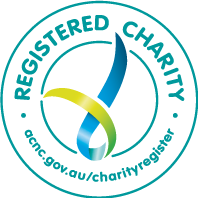What your journey might look like
After receiving a diagnosis of Tay-Sachs or Sandhoff disease, there is a lot to think about. In many cases, the diagnosis day is the point from which you begin to think about the future and the impact the disease will have, not just on your child or loved one, but on your whole family.
You may not be capable of thinking clearly or taking information in. During this time, you may have lots of appointments to meet with the many professionals who will form a network of care around your child or loved one. You may find yourself having to tell your story time and time again.
You can be your child or loved one’s best advocate. It can be beneficial to research each of the services that can assist your family. Not only will this help to make sure they suit your family’s needs, but can also ensure that you receive the greatest benefit from them.
 Our Helping Hands
Our Helping Hands
You can request copies of any written information that these professionals share with you. Filing them together will help you access them quickly when needed.
You can use our hard copy Booklets, or a notepad or phone app, to keep a record of what you have been told and any questions you might have. You might like to include information about:
- who you were speaking with
- what information they gave you
- when you spoke with them
- any actions that either you or they were going to do and by when
It can be useful to create a list of the professionals you meet with so you can begin to understand how they fit into your care and support network, and who you can turn to for what type of assistance for your child or loved one. You may like to write their contact details down on the fridge magnet , so that this information is easily accessible by anyone at any time.
Contact Rare Find Foundation if you would like a hard copy of the Guide, particular booklets or the fridge magnet to share with members of your care and support network.
Your support team will be as unique as your child or loved one.
It can be valuable to have a day-to-day contact that you can rely on when you need information, guidance or support. This may be your lead specialist, GP or NDIS Local Area Coordinator (LAC). They can also help you to find medical and social supports that are suited to your family’s needs and tailored to your child or loved one’s diagnosis.
If you are able to choose from a selection of care and support providers, it may help to ring and ask about their experience working with children with progressive conditions. You can also ask them to describe the approach they would take to caring for and supporting your family. Their answers to these questions will help you decide whether they are the right fit for your family.
Genetic counselling
Typically when a genetic disease is confirmed, the individual will also be referred for genetic counselling.
Genetic counsellors are health professionals qualified in both counselling and genetics. As well as providing emotional support, they can help families to understand Tay Sachs or Sandhoff Disease and what causes it, how it is inherited, and what a diagnosis means for their child’s health and development. Genetic counsellors are trained to provide information and support that is sensitive to family circumstances, culture and beliefs.
If Tay-Sachs or Sandhoff Disease runs in someone’s family, a genetic counsellor can explain what genetic testing options are available to them and other family members. People may choose to visit a genetic counsellor if they are planning a family, to find out their risk of passing that condition on to their child, or to arrange for pre-natal tests.
If testing shows that an individual and their partner are both genetic carriers for Tay-Sachs or Sandhoff Disease, a genetic counsellor can advise on reproductive options.
